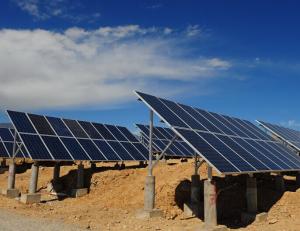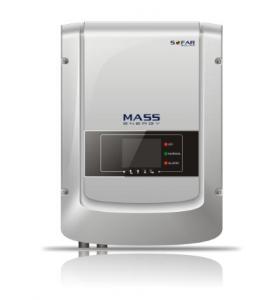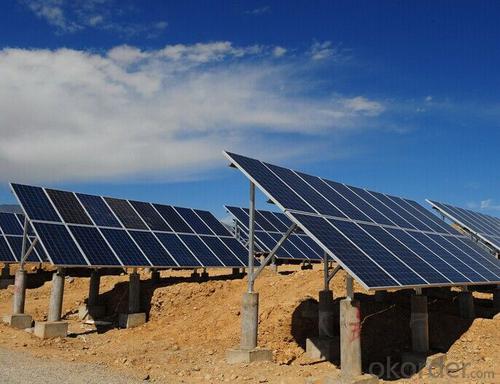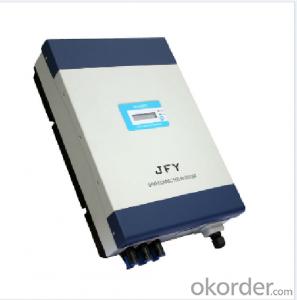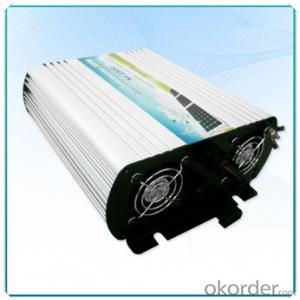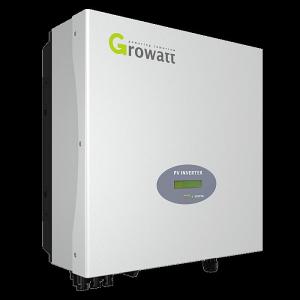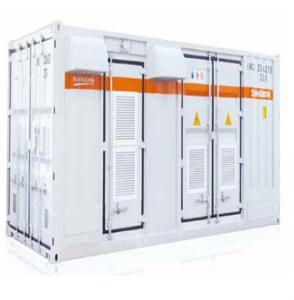220V 5000W Grid-Tied Solar PV Inverter 5000TLM
- Loading Port:
- Shekou
- Payment Terms:
- TT or LC
- Min Order Qty:
- 10 unit
- Supply Capability:
- 10000 unit/month
OKorder Service Pledge
OKorder Financial Service
You Might Also Like
5000W Grid-tied Solar PV Inverter 5000TLM
High-yield
•Max 97.6%efficiency
•Real timeprecise MPPT algorithm for max harvest
•Wide inputvoltage operation range from 100V to 550V
•Two MPPtrackers for flexible PV panel configuration
5000W Grid-tied Solar PV Inverter Low maintenance cost
•Rust-freealuminumcovers
•Flexiblemonitoring solution
•Multifunctionrelay can be configured to show various inverter information
5000W Grid-tied Solar PV Inverter Flexible and economicalsystem solution
•Free siteselection due to IP65
•Easy installationand maintenance due to “Plug & Play” connection
•Interfaceselection-Wi-Fi/RS485/DryRelay for more flexible configuration and system monitoring
•4” LCDdisplay
5000W Grid-tied Solar PV Inverter Intelligent grid management
•Reactivepoweradjustable
•Self powerreducerwhenover frequency
•Remoteactive/reactivepower limit control
5000W Grid-tied Solar PV Inverter Datasheet
Technical Data | SOFAR 3000TLM | SOFAR 3680TLM | SOFAR 4000TLM | SOFAR 4600TLM | SOFAR 5000TLM |
Input (DC) | |||||
Max. Input Power | 3100W | 3800W | 4160W | 4800W | 5200W |
Max. DC power for single MPPT | 2000 (200V-500V) | 2400 (200V-500V) | 2600 (200V-500V) | 3000 (200V-500V) | |
Number of independent MPPT | 2 | ||||
Number of DC inputs | 1 for each MPPT | ||||
Max. Input Voltage | 600V | ||||
Start-up input voltage | 100V(+/-5V) | ||||
Rated input voltage | 360V | ||||
Operating input voltage range | 100V-550V | ||||
MPPT voltage range | 160V-500V | 165V-500V | 175V-500V | ||
Max. Input current per MPPT | 10A/10A | 12A/12A | 13A/13A | 15A/15A | |
Input short circuit current per MPPT | 12A | 14A | 16A | 18A | |
Output(AC) | |||||
Rated power(@230V,50Hz) | 3000VA | 3680VA | 4000VA | 4600VA | 5000VA |
Max. AC power | 3000VA | 3680VA | 4000VA | 4600VA | 5000VA |
Nominal AC voltage | L/N/PE, 220, 230, 240 | ||||
Nominal AC voltage range | 180V-270V | ||||
Grid frequency range | 44~55Hz / 54~66Hz | ||||
Active power adjustable range | 0~100% | ||||
Max. Output Current | 13A | 16A | 17.5A | 20A | 22A |
THDi | <3% | ||||
Power Factor | 1(Adjustable +/-0.8) | ||||
Performance | |||||
Max efficiency | 97.6% | ||||
Weighted eff.(EU/CEC) | 97.1%/97.3% | ||||
Self-consumption at night | <1W | ||||
Feed-in start power | 20W | ||||
MPPT efficiency | >99.5% | ||||
Protection | |||||
DC reverse polarity protection | Yes | ||||
DC switch | Optional | ||||
Protection class / overvoltage category | I/III | ||||
Input/output SPD(II) | Optional | ||||
Safety Protection | Anti-islanding, RCMU, Ground fault monitoring | ||||
Certification | CE, CGC, AS4777, AS3100, VDE 4105, C10-C11, G83/G59 (more available on request) | ||||
Communication | |||||
Power management unit | According to certification and request | ||||
Standard Communication Mode | Wifi+RS485 | ||||
Operation Data Storage | 25 years | ||||
General data | |||||
Ambient temperature range | -25℃ ~ +60℃ | ||||
Topology | Transformerless | ||||
Degree of protection | IP65 | ||||
Allowable relative humidity range | 0 ~ 95% no condensing | ||||
Max. Operating Altitude | 2000m | ||||
Noise | <25dB | ||||
Weight | 18kg | ||||
Cooling | Nature | ||||
Dimension | 344×478×165mm | ||||
Warranty | 5 years | ||||
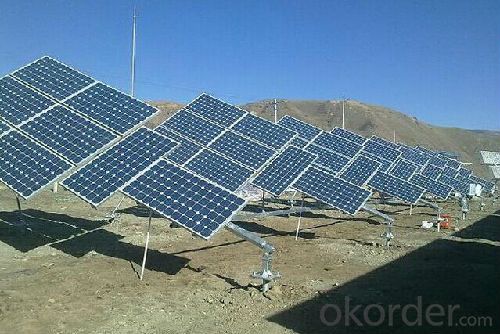
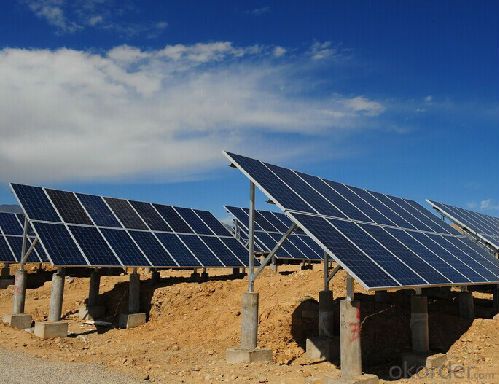
- Q: Can a solar inverter be used for off-grid systems?
- Yes, a solar inverter can be used for off-grid systems. In fact, it is an essential component of off-grid solar systems as it converts the DC power generated by solar panels into AC power that can be used to run appliances and devices. The solar inverter also manages the charging and discharging of batteries in off-grid systems, ensuring a stable and reliable power supply even when the sun is not shining.
- Q: What is the role of a solar inverter in voltage support?
- The role of a solar inverter in voltage support is to convert the direct current (DC) generated by solar panels into alternating current (AC) that is compatible with the electrical grid. Additionally, it helps regulate the voltage levels to ensure a steady and consistent supply of electricity to the grid, thereby supporting voltage stability.
- Q: Can a solar inverter be used in a solar-powered desalination system?
- Yes, a solar inverter can be used in a solar-powered desalination system. A solar inverter is responsible for converting the DC (direct current) output from solar panels into AC (alternating current) electricity that can be used to power various devices. In a solar-powered desalination system, the solar inverter would play a crucial role in converting the DC power generated by the solar panels into the AC power necessary to operate the desalination equipment, thereby enabling the system to function efficiently.
- Q: Can a solar inverter be installed in a residential area?
- Yes, a solar inverter can be installed in a residential area. In fact, residential areas are one of the most common locations for solar power installations, including solar inverters. These inverters help convert the DC electricity generated by solar panels into AC electricity that can be used to power homes and other electrical devices.
- Q: Can a solar inverter be used with dual-axis solar trackers?
- Yes, a solar inverter can be used with dual-axis solar trackers. A solar inverter is responsible for converting the direct current (DC) generated by the solar panels into alternating current (AC) that can be used to power electrical devices or be fed into the grid. The dual-axis solar trackers enable the solar panels to follow the sun's movement in both horizontal and vertical directions, maximizing their exposure to sunlight throughout the day. The solar inverter can still perform its function of converting DC to AC regardless of the type of solar tracking system used.
- Q: Can a solar inverter be used with solar-powered outdoor lighting?
- Yes, a solar inverter can be used with solar-powered outdoor lighting. A solar inverter is responsible for converting the DC (direct current) electricity produced by solar panels into AC (alternating current) electricity that can be used to power various devices, including outdoor lighting systems. This allows the solar-powered outdoor lighting to function efficiently and effectively.
- Q: Can a solar inverter be used with a solar-powered agricultural irrigation system?
- Yes, a solar inverter can be used with a solar-powered agricultural irrigation system. The solar inverter is responsible for converting the direct current (DC) produced by the solar panels into alternating current (AC) that can be used to power the irrigation system. This allows for efficient utilization of solar energy to operate the irrigation system, reducing reliance on traditional power sources and promoting sustainable agriculture practices.
- Q: Can a solar inverter be used with solar-powered data centers?
- Yes, a solar inverter can be used with solar-powered data centers. In fact, solar inverters are essential components in solar power systems as they convert the direct current (DC) generated by the solar panels into alternating current (AC) which is then used to power the data center's equipment. The solar inverter ensures efficient and reliable utilization of solar energy in data centers.
- Q: Are there any voltage or frequency regulations for solar inverters?
- Yes, there are voltage and frequency regulations for solar inverters. These regulations vary by country and are typically established by regulatory bodies or standards organizations. They ensure that the output voltage and frequency of solar inverters meet the required standards to ensure grid compatibility and prevent any potential damage to the electrical infrastructure.
- Q: What is the role of a cooling system in a solar inverter?
- The role of a cooling system in a solar inverter is to regulate and maintain the operating temperature of the inverter's internal components. This is crucial as solar inverters generate heat during the conversion of DC power from solar panels into AC power for use in homes or businesses. The cooling system helps dissipate this heat, preventing overheating and ensuring the inverter operates efficiently and reliably.
Send your message to us
220V 5000W Grid-Tied Solar PV Inverter 5000TLM
- Loading Port:
- Shekou
- Payment Terms:
- TT or LC
- Min Order Qty:
- 10 unit
- Supply Capability:
- 10000 unit/month
OKorder Service Pledge
OKorder Financial Service
Similar products
Hot products
Hot Searches
Related keywords
